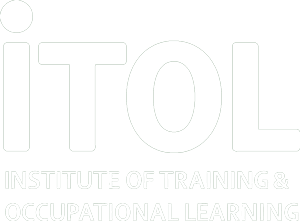As a consultant, you may think to yourself that there should be some form of magic formula, recipe or equation that can be used to create the most effective consultancy experience.
The truth is that being a successful consultant doesn’t happen by accident, in fact, it is achieved through a combination of skills and attributes. Although this magic formula is yet to be discovered, correctly applying these skills and attributes to your professional endeavours is certain to produce successful results.
The three interdependent variables that appear to play a major role in consultancy are; confidence, credibility and competence.
Firstly confidence is key to your success, if your professional development is dependent on the professional development of others then it is important that they can have confidence in you. Your students or clients can only have confidence in you, if you have confidence in yourself. In this sense, confidence is what we believe about ourselves.
The confident consultant believes that he or she has something of value that they can bring to the process. It is vital that confidence is not confused with arrogance, this would potentially damage client relationships rather than build upon them. Confidence, in this case, refers to a sense of self-awareness; knowing your strengths and using them to your advantage in a professional environment.
As mentioned earlier, these three elements are interlinked, confidence will often grow as competence and credibility grow – we start to feel confident based on our knowledge, skills and reputation. On the other hand, confidence can collapse if the other two elements falter.
As a consultant, you will find that one of the most important elements of maintaining your confidence will lie in the recognition that it is OK to not know. The freedom of not knowing will help to avoid defensive, face-saving routines. It is impossible to grow and help others to achieve their goals if you are in denial about your knowledge.
Which brings us onto the second element; competence. This is having the right skills and knowledge to meet the demands of a particular situation and the ability to apply them effectively to bring about change. After all, the overall goal in consultancy is generating some sort of change. Being able to competently bring about change will increase your credibility as a consultant.
The competent consultant has the ability to read situations, consider options and approach others with genuine wisdom and integrity. The ideal consultant is an emotionally intelligent person who knows that consultancy relies a lot on building and maintaining a relationship. Through these relationships they will be able to instigate change in the midst of complex environments.
The third and final element to consider is credibility, this is what others think about us, as consultants. It is possible to have highly developed competence and confidence but without credibility to match, these elements may be considered useless. The reputation of the consultant is what drives us, what the client believes about us to be true is just as important as what actually is true. Consultants should ensure that their reputation is true to their ability and their understanding of themselves. This is a particular difficulty for internal consultants, based in HR or training departments, highly skilled individuals who may be viewed as administrators rather than knowledgeable agents of organisational change. It is important to market yourself and your skills to boost credibility.
It is the combination of confidence, competence and credibility that appear to make the difference to the professional outlook of consultants. This is the closest we can currently get to a magic consultancy formula.

